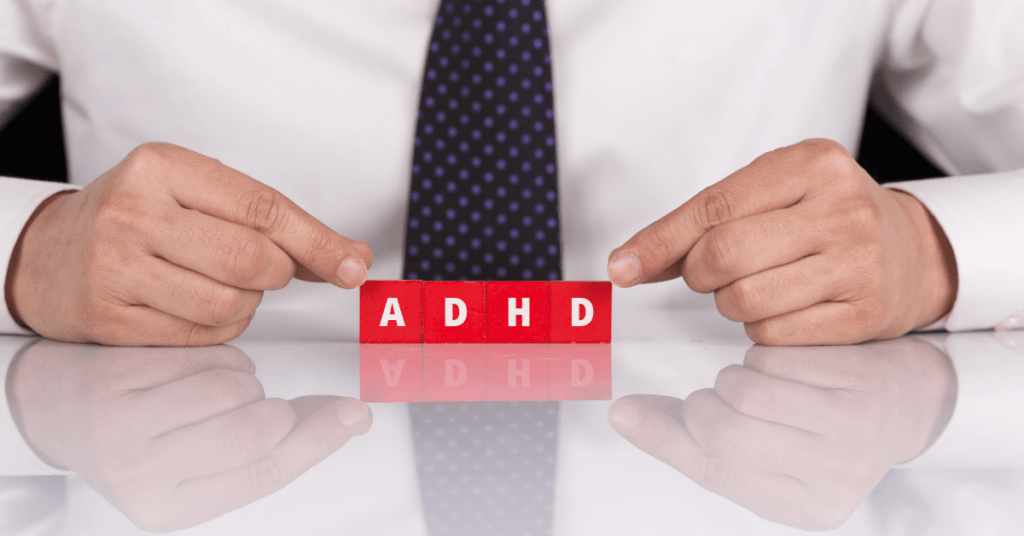Contents
ADHD Counseling

ADHD Counseling is a commonly used treatment for ADHD, which is a condition that affects the brain. Counseling for ADHD can help with symptoms of inattention, hyperactivity, and impulsivity by teaching coping skills to manage the symptoms on their own. This form of therapy also provides support for children who are struggling with an ADHD diagnosis.
“ADHD counseling is more likely to be recommended for children who display signs of hyperactivity, impulsivity, or extreme inattention. It’s more common than a child who has trouble paying attention will benefit from ADHD medication.”
Though this statement seems very clear about what type of people are most likely to receive this treatment, there is a likelihood that ADHD counseling can be beneficial to anyone who has been diagnosed with ADHD.
“ADHD Counseling is a more popular choice for mild cases of inattention, while medication tends to be more effective for severe symptoms.”
Medication and counseling have been known to work better together than on their own, so it is important to consult with a therapist or psychiatrist after ADHD medication has been prescribed. In any case, it is crucial to get help if you think you have ADHD symptoms.
What Is ADHD?
When someone has ADHD, they may have problems with inattention, hyperactivity, and impulsivity. The symptoms can be different for each person, but their symptoms are usually extreme.
There are many symptoms that may come with having ADHD. Some common symptoms are behavior issues, an inability to focus on one thing, being impulsive or impatient, being uncomfortable being still for too long, not following directions well, or understanding new concepts quickly.
ADHD is something that has always been a struggle for me. I’m constantly forgetting things, I get really frustrated because it takes me a long time to do things that other people can do quickly. It’s frustrating for me to talk to someone who doesn’t understand what ADHD is like.
Causes Of ADHD
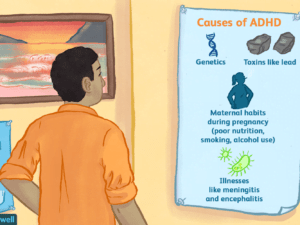 There are many reasons for someone to have ADHD, but nobody fully understands what causes ADHD. Some factors that may contribute to the development of ADHD are genetics, exposure to environmental toxins while in utero or shortly after birth, alcohol or drug use during pregnancy, premature delivery, or low birth weight.
There are many reasons for someone to have ADHD, but nobody fully understands what causes ADHD. Some factors that may contribute to the development of ADHD are genetics, exposure to environmental toxins while in utero or shortly after birth, alcohol or drug use during pregnancy, premature delivery, or low birth weight.
Hyperactivity can be characterized by an individual who has difficulty staying seated at school or work for a long period of time. They may also enjoy being very active and/or they feel restless often. People with hyperactivity can also feel like they’re always on the go and tend to talk excessively. Impulsivity is when one does something without thinking about it first or not thinking about the consequences. For example, someone can go behind their parents’ backs to do something they shouldn’t be doing, without thinking of what could happen if they get caught.
ADHD Counseling
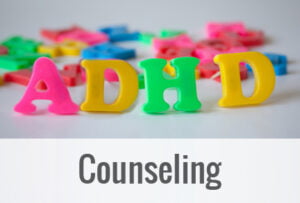
The following are some therapies that may help treat people with ADHD, but you should consult your doctor before starting them if you do not want to take any medications for your condition. There are a number of treatments for ADHD, including:
- Medication
- Therapies such as art and music therapy, and multimodal therapy
- Medications to address specific symptoms
- People with ADHD may also benefit from the following treatments:
- Behavioral interventions by someone who specializes in this area
- Anger management therapy if they have trouble controlling their anger
- Weight loss therapy if they have been put on a strict diet plan because of their weight problem.
- Neurofeedback
- Natural supplements that may help boost focus and attention
- Further counseling to address any other issues caused by their condition, such as low self-esteem or overconfidence in some cases
Cognitive Behavioral Therapy
Therapy is the most common type of therapy for ADHD. Unlike traditional psychotherapy, Cognitive Behavioral Therapy is goal-oriented and usually takes a time-limited approach. The goals of Cognitive Behavioral Therapy for ADHD include: improving attention abilities; decreasing hyperactivity; and reducing impulsivity and aggression. Another form of Cognitive Behavioral Therapy is called Rational Emotive Behavior Therapy. It helps patients with ADHD change their behavior by changing how they feel about themselves and their environment.
Dialectical Behavioral Therapy
This type of therapy focuses on the relationship between thoughts, feelings, and behaviors to better understand yourself as well as others. You learn about your own thoughts that are unrealistic or irrational, then work towards balancing these thoughts with more realistic ones. Dialectical Behavioral Therapy also emphasizes acceptance rather than change when working toward these rational thoughts which allow for a more accepting space in therapy where you can start to make sense of your experiences and emotions without judgment from others or yourself which may help those suffering from ADHD.
Social Skills Training
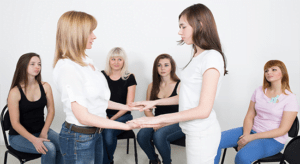 Most children with ADHD have social problems, which may be even more pronounced in adults. These problems can take a toll on their lives and become difficult to deal with as they get older. This is where Social Skills Training comes in. The goal of this type of therapy is for parents and children with ADHD to learn appropriate social skills that will improve their interactions with others.
Most children with ADHD have social problems, which may be even more pronounced in adults. These problems can take a toll on their lives and become difficult to deal with as they get older. This is where Social Skills Training comes in. The goal of this type of therapy is for parents and children with ADHD to learn appropriate social skills that will improve their interactions with others.
Group Therapy
Group therapy consists of groups of people, each one struggling with a different issue or problem. Who meet regularly to help each other feel supported and less alone. Those who attend group therapy for ADHD often have strong support systems at home. But still, find it necessary to talk about their experiences in an environment without judgment from family members or friends. Who may misunderstand what they are going through because it isn’t always visible?
Multimodal Therapy Multimodal
Therapy is a treatment that includes various types of therapies. For example, someone may be receiving CBT to change their behavior and MI for emotional problems that are leading to misbehavior. They might also attend group therapy to learn about ADHD in a space without judgment from others who don’t fully understand the complexities of living with this condition.
Systemic Family Therapy
Systemic Family Therapy focuses on relationships rather than individual needs or problems. It seeks to address direct causes as well as any indirect causes of ADHD symptoms. Such as family conflict or tension within a child’s social network. Using this form of therapy would help anyone suffering from ADHD feel supported by those around them. Since family plays a major role in the lives of most people with this condition.
Acupuncture
Those who suffer from ADHD have reportedly found relief through acupuncture. A form of Traditional Chinese Medicine that evolved over 2000 years ago. There is still very little science to support these claims. But some parents feel it has been useful for their children struggling with symptoms of ADHD. If you are considering acupuncture therapy for yourself or your child, make sure to talk to your therapist about how it works and what potential risks may be involved.
Music Therapy
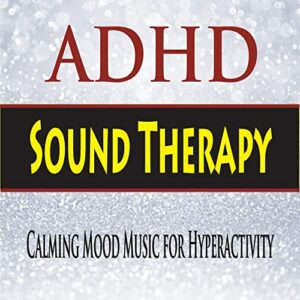 This is another alternative treatment option that has not been proven through traditional scientific methods. But many people swear by its effectiveness. For example, research has shown us that music therapy can improve behavior in dementia as well as help those with depression. In addition, parents have reported that their kids with ADHD respond well to listening to music. It can calm them down and help them focus for a short time so they may be able to do their work or finish a project without being constantly interrupted.
This is another alternative treatment option that has not been proven through traditional scientific methods. But many people swear by its effectiveness. For example, research has shown us that music therapy can improve behavior in dementia as well as help those with depression. In addition, parents have reported that their kids with ADHD respond well to listening to music. It can calm them down and help them focus for a short time so they may be able to do their work or finish a project without being constantly interrupted.
Music therapy works for many conditions, especially ADHD. Those who suffer from this disorder have reported that listening to soothing tunes helps calm them down. So they can be more focused and in tune with their surroundings. It may even distract them long enough so they are able to focus on the present task at hand. If you are considering music therapy for yourself or your child, check with your doctor before starting. Because there are still not many studies that prove its effectiveness when it comes to this condition.
In the United States alone, 8 million children between the ages of 4-17 have been diagnosed with ADHD as of 2011 which makes up 11% of all school-aged children. Despite being one of the most common childhood disorders today. It is not an easily treatable condition because there is no actual cure that exists currently. Instead, treatment focuses on managing symptoms through various therapies. That can include medication, therapeutic experiences like art or music therapy, and more.
Art Therapy
If your child can’t sit still long enough to focus on their homework because their mind is constantly jumping from one thing to the next. Art therapy might be a good option for them. Through this treatment method, they will learn how to better control their attention and pay more attention to the task at hand while doing something creative. Parents have reported that this type of therapy has helped calm down kids who feel overwhelmed by their schoolwork. So they can stay focused just long enough to finish it without getting distracted or frustrated along the way.
Multimodal Therapy
This type of therapy is used in addition to medication or another treatment option to address all aspects of ADHD. During this form of treatment, a counselor will work with you or your child’s doctor about what kind of medications would work best with their specific symptoms. They will also discuss various types of therapies that may help with managing certain symptoms including communication, concentration, and problem solving among others.
Treatment For ADHD
There are many different treatments that exist for ADHD. One way to treat ADHD is through medication. Medicines are commonly used to help with problems associated with hyperactivity or impulsivity so that individuals can have more control over themselves and their actions. These medications may improve concentration, reduce irritability, decrease emotional instability, increase socialization skills, and better handle stress. However, some people experience side effects from these medications including drowsiness, appetite loss/gain, headaches, stomach aches, or cramps.
ADHD medication is one of the most popular treatments for people who have been diagnosed with ADHD. However, there are many side effects to this medication. Some of these include appetite loss, headaches, drowsiness, stomach pain, or cramps.
Other treatments for ADHD include behavior therapy and counseling. This type of treatment can help someone manage their symptoms on a day-to-day basis by teaching them how to cope with their difficulties at home/school/work. Counseling is also an effective way for people with ADHD to deal with the daily struggles that come along with having this disorder.
How Does One Cope With ADHD?
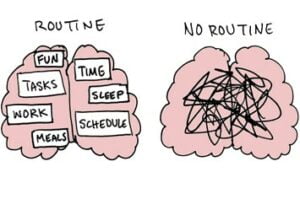
One thing that may be beneficial for those struggling with ADHD is counseling and behavior therapy. With this form of treatment, individuals learn how to better handle their symptoms and live a happier life overall by practicing various coping techniques. These may include deep breathing, using positive self-talk, and staying organized. By practicing these techniques on a daily basis, it becomes much easier to manage the difficulties associated with this disorder.
Moreover, talking with others can also prove helpful. By speaking with someone about how you feel and what you struggle with on a regular basis can help relieve some of the stress that comes along with having ADHD. It is important to remember that everyone experiences things differently and that not everything will go as planned all of the time because of your ADHD. Although this can be frustrating at times, keep in mind that there are effective ways for managing your symptoms so that you don’t feel like giving up. Keep trying no matter how long it takes and eventually, you’ll find what works best for you.
Conclusion
ADHD is one of the most common childhood disorders today, affecting nearly 11% of all school-aged children. There are a variety of treatments that can help with ADHD symptoms including medication. And certain therapies like art or music therapy. Talk to your doctor before starting any treatment for this condition. If you do not want to take medications as part of your care plan.
For more information, please contact MantraCare. ADHD is a neurodevelopmental disorder characterized by difficulty in paying attention, hyperactivity, and impulsivity. If you have any queries regarding Online ADHD Counseling experienced therapists at MantraCare can help: Book a trial ADHD therapy session
